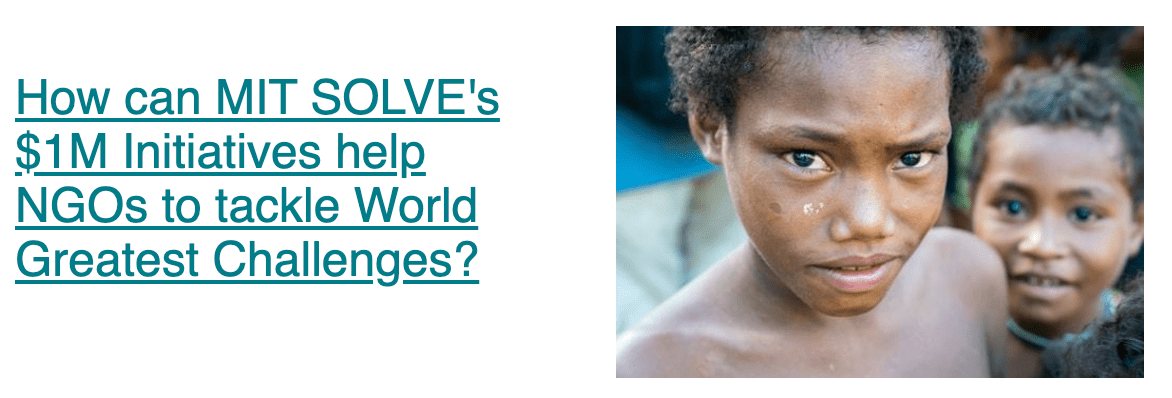Deadline: 18 June 2020
The MIT Solve community has announced the 2020 Global Challenge on the topic of “Maternal and Newborn Health”.
Every 11 seconds, a newborn or mother dies of conditions related to pregnancy and childbirth, mostly from preventable or treatable causes. While the majority of these deaths occur in low-income countries, marginalized communities everywhere are disproportionately affected: in the United States, for example, a black woman is 3.3 times more likely to die from a complication in childbirth than a white woman.
Even after pregnancy and childbirth, obstacles to physical and mental well-being abound, from premature birth complications to postpartum depression. Notably, the first month of a child’s life, the newborn period, is the most critical for survival and brain development.
The MIT Solve community is looking for technology-based solutions that promote the health and well-being of pregnant women, new mothers, and newborns everywhere. To that end, Solve seeks solutions that:
- Expand access to high-quality, affordable care for newborns, pregnant women, and new mothers by expanding the health workforce, improving service delivery and diagnostics, and lowering barriers to seeking care, including stigma;
- Decrease the risk of disease among mothers and newborns, including by increasing vaccination rates and reducing infectious disease transmission from mother to baby;
- Improve gynecological health for all women to reduce biological vulnerabilities among newborns; and
- Support the mental and emotional health of mothers throughout pregnancy and after childbirth, through medical as well as community support.
Funding Information
Receive access to more than $1 million in prize funding for the 2020 Challenge.
Eligibility Criteria
- Anyone, anywhere around the world can submit a solution to Solve’s Challenges.
- You can be an individual, a team, or an organization.
- You can be an applicant from previous years or already part of the community.
For more, visit https://solve.mit.edu/challenges/maternal-and-newborn-health










































